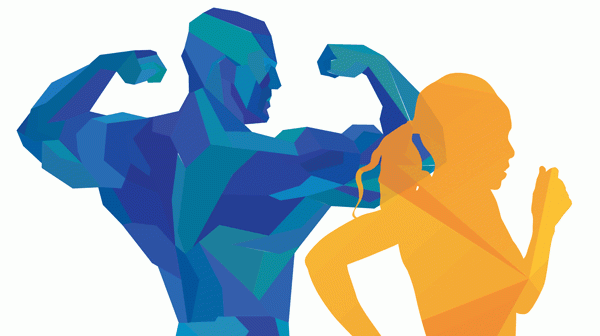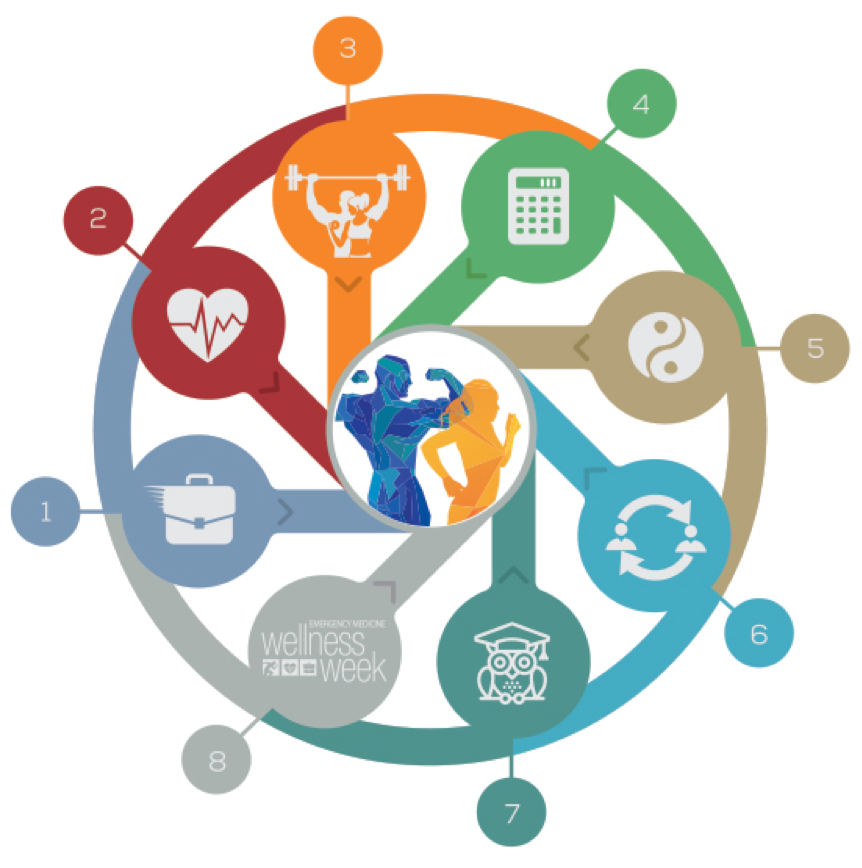
I can still remember the moment I walked into my chair’s office and told him that I wanted to resign. My anxiety levels were peaking as I sat down and told him I wanted to leave. The words were as much of a surprise to me as they were to him. In reality, I had been thinking about that moment and those words for months. While he was incredibly supportive, I could tell that he did not believe me, as I didn’t even believe myself. I subsequently spoke to my mentor, and repeating the words to him somehow reaffirmed my decision and armed me with more confidence to make the ultimate decision. I was leaving behind my first and only job out of residency, my titles, a good salary, a locally renowned city hospital noted for an appreciative patient population with exceptional pathology, and, most importantly, my wonderful work family.
If you’re wondering why I needed such a drastic change in my life, it’s a complicated and personal answer, but suffice it to say that I felt the weight of personal neglect and an unbalanced life and simply needed a little time to rebalance.
Once I left my job, I took two months of personal time during which I vacationed in Europe. Upon return, the next phase of my career started at a small rural critical access hospital as a part-time physician working one-week per month, with the remainder of the time to focus on whatever I wanted. As I started ruminating over what to do during my time off, I soon realized the extent to which I had been neglecting so many important elements of my life. As I pieced my new life together, I noticed that I had been focusing so much on my career that I was ignoring my personal needs.
 I wasn’t thinking about the ACEP Wellness Wheel when I first started my journey, but looking back I can see how, with every step of my rebalancing process, I was focused on a different spoke of the Wellness Wheel.
I wasn’t thinking about the ACEP Wellness Wheel when I first started my journey, but looking back I can see how, with every step of my rebalancing process, I was focused on a different spoke of the Wellness Wheel.
Emotional
First on my list of plans was to escape New York City and travel to fulfill some of my dreams. I needed a complete recharge. Conveniently, I started my trip in Berlin at the Social Media and Critical Care (SMACC) Conference, then headed to Prague, and finally settled into a small coastal town south of Lisbon. While there, I took up kitesurfing and relaxed in the sun. It was during this time that I was finally able to shed some of the weight of my previous life. I also made quite a few plans for the next year of my life and, in particular, focused on how to connect more regularly with my family.
Physical
Throughout my travels and beyond, I resolved to make physical activity and sport a central part of my life. I aimed to do some form of activity six to seven days a week, either running, doing a training class, or playing hockey. I also made it a goal to enter my first half-marathon this May in Brooklyn.
Spiritual
Though I’ve never been overtly religious or spiritual, I try to walk the path by doing my best to be considerate and help others. Owing to my new unencumbered life, I found that I had more time for personal reflection. Like many emergency physician multitaskers, I made my physical activity time my spiritual time. While running, I was able to either get lost in my thoughts or, if I chose, deliberate on a topic. I also took this opportunity to reflect on recent events to consider how I could have dealt with them better.
Financial
As with many physicians, personal finances was a foreign language, with 401k, 403b, 457, retirement accounts, brokerage accounts, ETFs, Index funds, S&P, CDs all confusing me. With my newfound freedom, I started reading books and chatting with financial advisors, friends, accountants, and virtual colleagues via emergency physician Facebook sites to gain a baseline knowledge and understanding of how to manage the money that I had worked hard to earn. Though I still have much to learn, I have increased my confidence, and am in the process of more securely managing my future.
Occupational
My clinical career took a complete 180-degree turn from a high-volume, urban, academic, New York City emergency department in one of the most culturally diverse zip codes in the United States to a critical access hospital in rural America. I traded one environment with all its challenges for a new environment with a different set of challenges. Having only ever worked at academic centers, the clinical skills I needed had to shift from a teacher and supervisor role to that of a small town, single-coverage doc. In this role, I’ve been challenged every day to be a better clinician and also a better human being. I found myself with less urgency to run from each patient’s room and slowed my pace at the bedside. I allowed myself to truly listen to stories of the pateints’ amazing lives and share a few smiles, laughs, and even tears with my patients. While I hope that I was able to provide them with a human connection from a doctor, they also provided me with a human connection and emotional revitalization.
Social
Without the typical stresses of a full-time job and a schedule that I could fully control, I realized that I now had social perks. My current schedule allowed me to reconnect with friends. I was almost always available to spend time, but also to contemplate and truly appreciate my friends who have become my family. My social experience at work also changed; my new site with its lower volume allowed me to slow down and become a little more human and allowed me to connect more personally with the extraordinarily kind and hardworking nurses and techs.
Intellectual
After my initial break from academia, my battery was recharged to full for academic and intellectual development. Whereas I previously had been paid to do this work, I do it freely now because I am extremely passionate about it, which makes it painless. Specifically, my engagement with committees on ACEP and the Council of Emergency Medicine Residency Directors has been supercharged. I’ve been able to continue work on physician wellness projects, and I have embarked on a new career path by being accepted to an administration fellowship where I will seek to further my ambitions to improve provider wellness operationally at a large hospital network in New York City.
Looking Ahead
Though this was not a sabbatical in the truest sense, as most institutions do not offer them and certainly not to someone only 5 years out of residency, this was my sabbatical. While some readers will dismiss this article as unrealistic and incompatible with their lives, I am certain that, should you be offered a sabbatical or if you take time away from your regular job and contemplate your life through the spokes of the ACEP Wellness Wheel, you will recharge your battery. Even if you do not have the opportunity to take time away, consider making yourself a priority and commit to some “me” time for personal development. Take care of the quality of life tasks that you’ve been neglecting. Discover and define your own spokes for wellness to rebalance yourself.
To physician leaders and administrators reading this, consider devising a strategy to allow your physicians to take sabbaticals and return to their jobs. Perhaps even offer a rotating part-time slot. I also urge you to find creative solutions that are not ageist or strictly hierarchical. Be fair and include your junior faculty. I can guarantee you will have a revitalized staff who will appreciate your concern for their well-being.
Dr. Lakoff is Assistant Professor in the Department of Emergency Medicine at NYC Health + Hospitals and Elmhurst Hospital Center in New York City. Follow him on Twitter at @burnoutMD.
Pages: 1 2 | Multi-Page





No Responses to “Turning the ACEP Wellness Wheel into My Sabbatical”